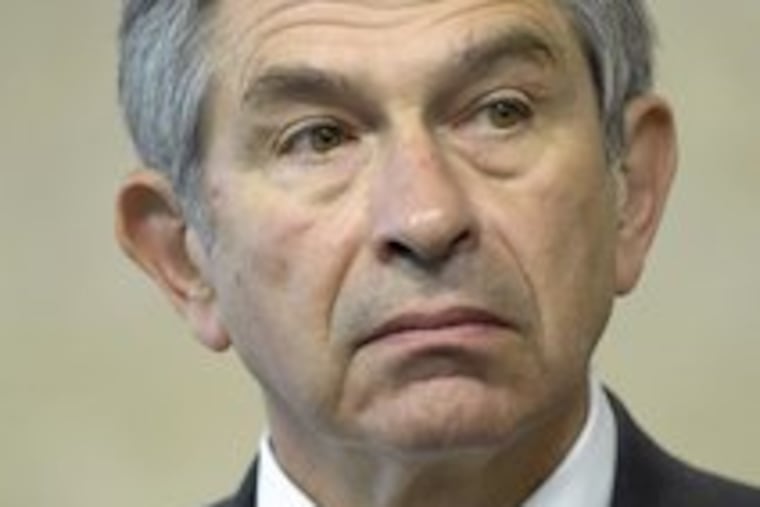
Paul Wolfowitz is an extremely intelligent man. He may be a true humanitarian idealist. But right now, Wolfowitz is best known for being a master of disaster as he packs up and leaves the president's office at the World Bank.
He announced late Thursday that he would resign effective June 30, after weeks of trying to rise above a personal drama that had a soap opera feel to it.
His departure was negotiated with the bank's board: He would go voluntarily, and the board would not adopt a report that found Wolfowitz had broken ethical and governing rules.
Wolfowitz's actions toward a close companion defied good old common sense.
What was he thinking when he ignored bank procedures to give his girlfriend, a World Bank employee, a generous promotion and pay raise? Wolfowitz should have known that such favoritism would make it harder for him to preach against corruption in governments that sought World Bank money.
He should have known, except Wolfowitz is famous for clinging to his own theories and conclusions. Remember how as deputy U.S. defense secretary he said Iraqis would hail American troops as liberators?
But the main topic of discussion now shouldn't be his role in the Iraq war. That would be a red herring. Nor should it be about his sorry fight to hang onto his World Bank office even as his credibility crumbled.
The conversation among the bank's leaders should be about reinvigorating its mission to help reduce world poverty. It annually gives $22 billion in loans and grants to poor countries.
The role of poverty in stoking and maintaining war, in abetting the spread of diseases such as HIV/AIDS, has become increasingly clear. Smart anti-poverty and good governance programs are investments that have huge returns if done well.
The first task is choosing a new president to replace Wolfowitz.
The United States, as the largest donor to the bank, has traditionally chosen its chief. Wolfowitz's predecessor, James D. Wolfensohn, earned his reputation as an excellent manager. No doubt his background in international finance and development contributed to his success in focusing the bank's programming and improving its operations and international image.
Wolfowitz did not have those important credentials. The next leader should.
Nor did President Bush consult with other nations about nominating Wolfowitz to replace Wolfensohn in 2005. Consultation with allies is occurring this time around.
One intriguing name that has been floated as a Wolfowitz successor is Tony Blair, who soon will step down as the British prime minister. Blair certainly has the finance and development background - and the passion to help people in poverty around the globe - to restore the World Bank's credibility.
The broader question about picking a World Bank leader is whether the United States should have the sole say. Bush would be smart to propose sharing that role with other big donors.